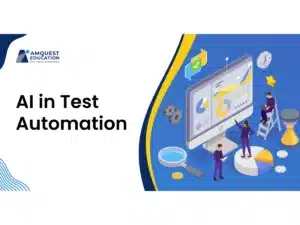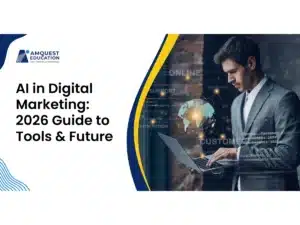AI Beyond Hype: Real-World AI Applications Driving Business Transformation
Artificial intelligence has moved well beyond buzzword status to become a core driver of business innovation and competitive advantage. Today, AI applications in business are reshaping industries by enhancing customer interactions, automating complex workflows, and enabling smarter decision-making. This article explores the evolution of AI technologies, highlights the latest trends, and shares proven strategies for leveraging AI to deliver measurable business results. Technology leaders and AI practitioners will gain practical insights, including a compelling case study and actionable recommendations to accelerate their AI initiatives.
Unlocking AI’s True Business Potential in 2025
In 2025, enterprises across sectors are rapidly integrating artificial intelligence into their operations, marketing, sales, and customer engagement strategies. IDC reports that 66% of CEOs have seen measurable benefits from generative AI projects, particularly in boosting operational efficiency and elevating customer satisfaction. As AI-powered tools become business essentials, understanding how to apply these technologies effectively is critical for CTOs, software architects, and AI professionals seeking to lead successful business transformation.
The Evolution of AI Applications in Business
From early rule-based automation to today’s sophisticated machine learning and agentic AI systems, the AI journey has been transformative. Initially focused on automating routine tasks, AI now drives strategic innovation by enabling:
- Predictive analytics that forecast customer behavior, market trends, and operational risks
- Natural language processing (NLP) powering conversational AI, sentiment analysis, and real-time customer insights
- Workflow automation to streamline processes, reduce errors, and accelerate cycle times
This evolution has expanded AI’s role from support functions to a strategic lever for competitive advantage and innovation.
Latest Features, Tools, and Trends in AI for Business
Generative AI and Agentic AI
Generative AI models, including Google Cloud’s Gemini and Vertex AI, empower businesses to build intelligent agents capable of autonomous decision-making in complex domains like mortgage underwriting and wealth management. These agents enhance productivity by generating personalized responses, summarizing customer interactions, and accelerating decision cycles, illustrating the power of agentic AI in enterprise contexts.
AI-Powered Customer Engagement
Leading companies such as LinkedIn have harnessed AI-driven sales engines to boost renewal bookings by 8%, while AI chatbots and virtual try-on applications, like NEONAIL, deliver highly personalized customer experiences that increase satisfaction and sales.
Intelligent Automation in Operations
AI-enabled inventory management systems, exemplified by Pinterest and inVia Robotics, automate real-time stock tracking and warehouse logistics, improving productivity up to fivefold and significantly reducing labor costs.
AI in Marketing and Sales
Advanced AI tools analyze customer data to optimize content creation, identify high-potential leads, and predict buying behaviors, enabling businesses to tailor campaigns and maximize ROI.
Advanced Tactics for Success with AI Applications in Business
- Integrate AI Early in Core Business Processes
Embedding AI into workflows from the outset unlocks continuous optimization and fosters innovation. - Leverage Agentic AI for Autonomous Decision-Making
Deploy AI agents that independently manage complex tasks, freeing human resources for strategic initiatives. - Use Predictive Analytics to Anticipate Market Shifts
Harness data-driven insights to stay ahead of competitors and allocate resources dynamically. - Adopt AI-Powered Customer Insights
Utilize NLP and machine learning to analyze feedback in real time, enabling personalized engagement. - Prioritize Explainability and Ethical AI Practices
Ensure AI models are transparent, fair, and compliant with regulations to build trust among stakeholders.
Embedding Storytelling and Community in AI Adoption
Successful AI adoption transcends technology; it requires compelling storytelling that communicates AI’s value and builds user confidence. Organizations that share real-world examples and learner success stories cultivate vibrant communities that accelerate innovation and practical learning. These ecosystems are further strengthened through industry partnerships that align education with business needs, a hallmark of Amquest’s approach to AI-powered learning.
Measuring Success: Analytics and Insights
Robust analytics frameworks are essential to quantify AI’s impact on business outcomes, including:
- Efficiency improvements, such as reduced processing times
- Revenue growth linked to AI-driven sales enhancements
- Customer satisfaction scores following AI implementation
- Employee productivity and engagement metrics
Enterprises adopting Microsoft AI solutions report productivity multipliers, with every dollar invested in AI projected to generate nearly $5 in economic value by 2030.
Business Case Study: United Wholesale Mortgage’s AI Transformation
Challenge: United Wholesale Mortgage (UWM) struggled with slow loan processing and limited underwriter productivity, affecting customer satisfaction and broker relationships.
AI Strategy: UWM deployed Google Cloud’s Vertex AI and Gemini models to develop AI-driven underwriting agents that automate document review, generate actionable insights, and assist underwriters.
Results: Within nine months, underwriter productivity more than doubled, and loan closure times shortened significantly, benefiting 50,000 brokers and their clients. This example demonstrates how combining generative AI with domain expertise can accelerate workflows, reduce costs, and enhance customer experiences.
Why Choose Amquest’s Software Engineering, Agentic AI and Generative AI Course?
Amquest offers a comprehensive curriculum that merges software engineering fundamentals with deep expertise in agentic AI and generative AI technologies. Key advantages include:
- AI-led modules covering advanced frameworks and real-world business applications
- Hands-on projects and case studies aligned with current industry demands
- Internship opportunities and placement support with leading companies
- Experienced faculty drawn from AI and software development sectors
- Flexible learning formats, including Mumbai-based and national online access
This integrated approach uniquely equips professionals to design, deploy, and lead AI initiatives that drive genuine business transformation.
Actionable Tips for Marketers and Business Leaders
- Prioritize AI education and training to build in-house expertise through specialized courses like Amquest’s.
- Partner with trusted AI education providers to ensure alignment with industry needs.
- Adopt a phased AI rollout, starting with pilot projects in high-impact areas before scaling.
- Use data ethically to maintain privacy and transparency, fostering customer trust.
- Leverage AI analytics tools to monitor performance and continuously optimize applications.
FAQs
Q1: What are the most impactful AI applications in business today?
Predictive analytics, NLP-driven customer engagement, workflow automation, and agentic AI for autonomous decision-making are transforming business operations and growth.
Q2: How does AI improve customer experience in enterprises?
By personalizing interactions through data analysis, AI-powered chatbots and virtual assistants respond swiftly and accurately, enhancing satisfaction and loyalty.
Q3: What role does machine learning play in business transformation?
Machine learning delivers predictive insights, automates complex tasks, and optimizes resources, driving efficiency and innovation.
Q4: How can businesses measure the success of AI initiatives?
Success metrics include operational efficiency gains, revenue growth, customer satisfaction scores, and employee productivity improvements.
Q5: Why is workflow automation important in AI adoption?
Automating repetitive tasks reduces errors, cuts costs, and frees employees to focus on strategic priorities, boosting agility.
Q6: How does Amquest support AI adoption through its courses?
Amquest’s AI-led modules, hands-on projects, internships, expert faculty, and flexible learning formats equip learners with practical skills to implement AI in business effectively.
This article demonstrates how AI applications in business are evolving from experimental tools to strategic assets that transform industries. By mastering these technologies through specialized education like Amquest’s Software Engineering, Agentic AI and Generative AI course, professionals can lead the AI-driven business transformation revolution with confidence.






